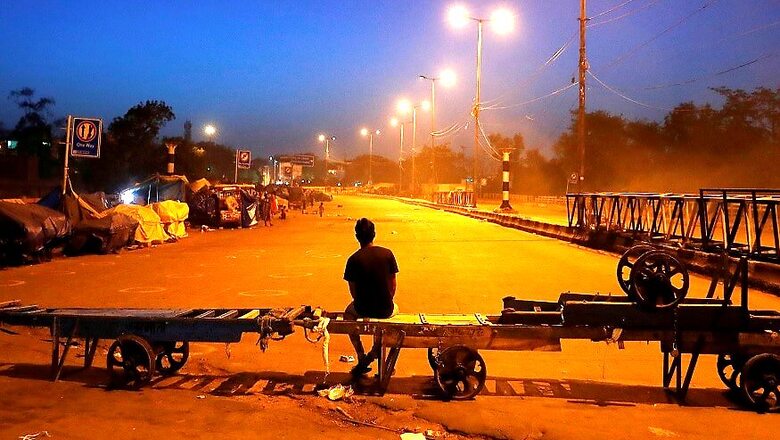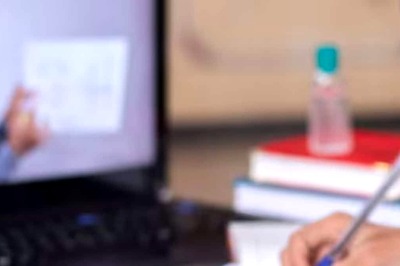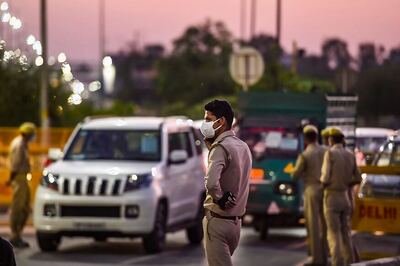30 Municipal Areas Account For 79% of India's Coronavirus Infection Caseload, Cases Near 82,000-mark

views
Thirty municipal areas account for 79 per cent of India's coronavirus infection caseload, the Group of Ministers (GoM) on COVID-19 was informed on Friday, as the death toll in the country due to the disease rose to 2,649 and the total tally of cases climbed to 81,970.
An increase of 100 deaths and 3,967 cases was recorded in the last 24 hours since Thursday 8 am, according to the Union Health Ministry.
The number of active cases stood at 51,401 while 27,919 people have recovered and one patient has migrated, it said.
"Thus, around 34.06 per cent patients have recovered so far," a senior health ministry official said.
As cases continue to rise, the GoM deliberated on the containment strategy and management of COVID-19, as well as the measures being taken by the Centre and various states.
At the 15th meeting of the high-level GoM held, under the chairmanship of Union Health Minister Harsh Vardhan, a detailed presentation on the current situation due to the coronavirus outbreak, both globally and in India, was made, according to a health ministry statement.
The GoM was informed at the meeting that worldwide, the total COVID-19 cases stand at 42,48,389 with 2,94,046 deaths and fatality rate of 6.92 per cent, whereas in India, the fatality rate is pegged at 3.23 per cent.
It was also informed that "there are 30 municipal areas which constitute 79 per cent of India's caseload", the statement said.
A total of 27,920 people have been cured of the disease with 1,685 in the last 24 hours, taking the recovery rate to 34.06 per cent, the ministry said.
"It was also highlighted that the impact of the lockdown was seen on the doubling rate which improved from 3.4 days in the pre-lockdown week to 12.9 days in the last week," it said.
At the meeting it was stressed that the focus of COVID-19 management strategy needs to be on the states with the highest number of confirmed cases and fatalities as well as on treatment and case fatality management, for which timely detection and contact tracing were the best way forward, it said.
The GoM was also apprised about various recommendations of the Centre for containment zone management pertaining to indicators, root causes and action required. These have been shared with the states and union territories, the ministry said.
Civil Aviation Minister Hardeep Singh Puri, External Affairs Minister S Jaishankar, Minister of State for Home Nityananda Rai, Minister of State for Shipping, and Chemical and Fertilizers Mansukh Lal Mandaviya, and Minister of State for Health Ashwini Kumar Choube were present at the meeting.
On health infrastructure preparedness, the GoM was told that as on Friday, a total of 8,694 facilities comprising 919 dedicated COVID-19 hospitals, 2,036 health centres and 5,739 care centres with a total of 2,77,429 beds for severe and critical cases, 29,701 Intensive Care Unit (ICU) beds and 5,15,250 isolation beds, are available.
Also, 18,855 ventilators are now available to combat the virus, the health ministry said.
The Group of Ministers was also informed that domestic manufacturers have reached a daily production capacity of nearly three lakh personal protective equipment (PPE) and an equal number of N-95 masks which is sufficient to meet the nation's requirement in the near future.
Moreover, ventilator manufacturing by domestic manufacturers has also started and orders have been placed.
The Centre has provided 84.22 lakh N-95 masks and 47.98 lakh PPE to states, union territories and central institutions.
Indian Council of Medical Research (ICMR) Director General Balram Bhargava informed the GoM that the testing capacity has increased in the country to 1,00,000 tests per day through 509 government and private laboratories.
The number of RT-PCR tests for detection of COVID-19 in India crossed the two million mark on Friday, ICMR officials said.
A total of 20,39,952 samples have been tested as on May 15 at 9 am in the country with 92,911 tests being conducted since Thursday 9 am, Dr Rajnikant Srivastava, ICMR's head of Department of Research Management, Policy Planning and Communication in Delhi said.
The GoM was also apprised about the efforts of the Ministry of External Affairs and the Civil Aviation Ministry in cooperation with state governments to prepare a staggered timeline of flights to bring back Indian citizens stranded abroad.
"In Phase-1 of the exercise, around 12,000 Indians have been brought back and quarantined in the respective states," the health ministry said.
Union Health Minister Vardhan, meanwhile, has appealed to all states and union territories to ban sale of smokeless tobacco products and spitting in public places in line with the orders of the Rajasthan and Jharkhand governments to prevent the spread of coronavirus infection.
In a letter to all state health ministers, he said smokeless tobacco users have a tendency to spit in public places or otherwise and therefore, increase health risks especially those of spreading contagious diseases like COVID-19, tuberculosis, swine flu, encephalitis and others.
In another significant development, with COVID-19 cases continuing to rise in South-East Asia, the WHO cautioned countries in the region to take "evidence-informed action" and conduct careful assessment of the local epidemiology before winding down the health and social measures taken to combat the virus.
The region has nearly 1,22,000 cases and 4,000 deaths due to COVID-19. In India, the death toll rose to 2,649 and the number of cases climbed to 81,970, according to latest data.
Countries in the region are in various transmission scenarios and the cases are increasing. In every transmission scenario, the core public health measures remain - rapidly detect, test, isolate, care and trace contacts, said Dr Poonam Khetrapal Singh, Regional Director, WHO South-East Asia.
Fatalities continued to rise in India with 100 more deaths since Thursday. Of the 100 deaths, 44 were in Maharashtra, 20 in Gujarat, 9 in Delhi, 8 in West Bengal, five each in Uttar Pradesh and Madhya Pradesh, four in Rajasthan, two each in Tamil Nadu and Karnataka and one in Andhra Pradesh.



















Comments
0 comment